A Sanctuary of Barefoot Luxury in the Maldives.
Somewhere in the Indian Ocean, adrift in the blue vastness of the Baa Atoll, lies a whisper of land, Kunfunadhoo Island. It is a place where time has no dominion, the jungle hums its ancient songs, and the footprints in the sand disappear with the tide as if to remind us that nothing, not even our presence, is permanent. This is Soneva Fushi, though to call it a resort would be to diminish it. It is something else entirely, a mirage of luxury, castaway simplicity, and a reverence for the natural world.
Arrivals to this floating Eden are made by seaplane, a journey that feels less like transit and more like an initiation. The lounge in Malé serves as the first portal, where waiting is softened by the quiet indulgences of spiced watermelon juice, handmade chocolates, and the gentle, almost ceremonial process of easing into island life. By the time the seaplane takes off, tracing lazy arcs over atolls in impossible hues of turquoise, the world beyond ceases to matter. The first sight of the island, a dense tangle of green fringed by a strip of blinding white sand, is an apparition, too perfect to be real.
There is no check-in desk, only the warm press of sand beneath bare feet and the feeling that one has finally arrived in paradise.
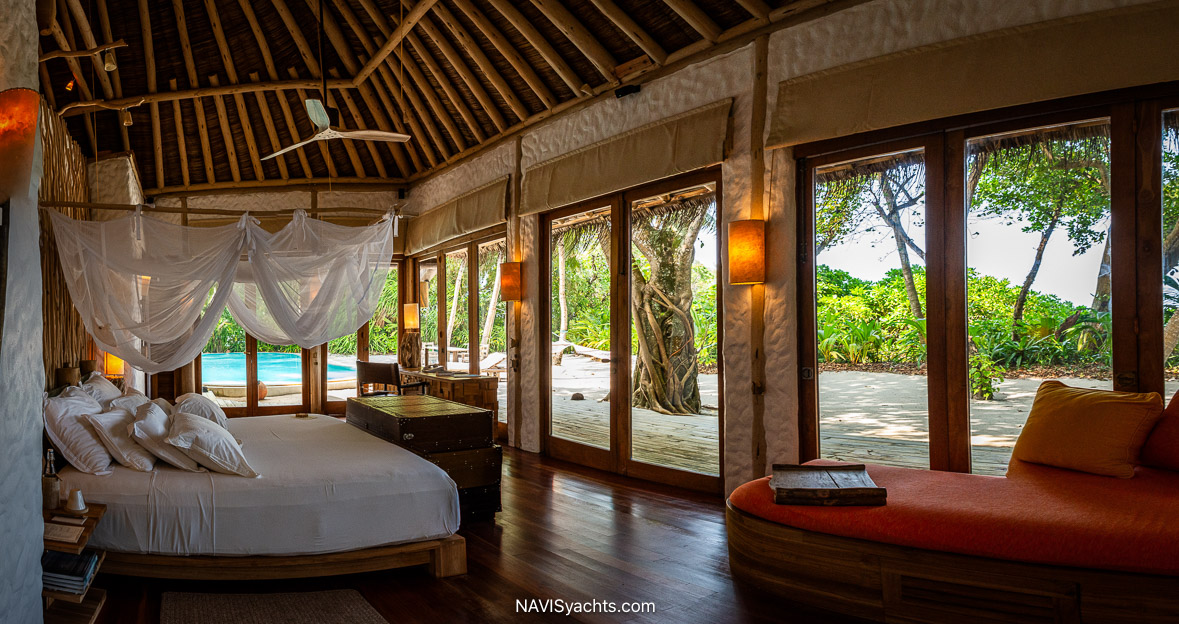
The Luxury of Nature
The world loosens its grip somewhere between stepping off the seaplane and onto the jetty. The first thing is the bag, a simple cloth pouch handed over by the Barefoot Guardian, an unspoken invitation to abandon shoes, to surrender to the island’s rhythm. The ground breathes beneath you, firm, shifting with the light, cool in the morning, warm under the midday sun, and soft and forgiving when the evening tide rolls in. The absence of shoes is the first step in forgetting unnecessary things, watches, schedules, urgency.
There is no need for time here. The sun dictates the day. Soft golden light spilling over the jungle at dawn, the weight of heat slowing footsteps by noon, the long, indigo stretch of dusk when the waves darken, and the sky fills with stars. The body, accustomed to hours measured in meetings and alarms, begins to adjust to something older, something more ancient and instinctive. Footsteps slow. Thoughts quieten. The island takes over.
And yet, what appears effortless is a perfectly tuned machine, a system designed to sustain itself with zero waste, no excess, no harm. There is no pollution, no scars of industry, no careless indulgence. The island runs on the sun’s power, the ingenuity of hands, the cycle of renewal.
Deep within the island, there are hands at work. A gardener, his presence as much a part of Soneva Fushi as the tide itself, tends to the vegetable gardens that have flourished under his care since the beginning. The soil, once barren, now yields abundance, mangoes heavy with nectar, papayas splitting open in the heat, bright green lettuces damp with morning mist. The island offers no excess, only what the land and sea willingly provide. From this garden and from the ocean that breathes beyond the shore, come the ingredients that sustain life here, that nourish those who pass through. The rhythm of the island dictates the harvest, fruit ripened under the same sun that warms the sand, leaves still damp with the morning’s hush, fish drawn from the water before the tide shifts again. What is gathered here finds its way, effortlessly, into the hands of those who prepare it, into the dishes that appear as if by magic, into the quiet rituals of each meal.
What is used is transformed. Glass, metal, and plastic waste are not discarded but reborn, melted, sculpted, and woven into new forms. A bottle, once forgotten, becomes a work of art. A can, emptied, finds another purpose.
Even what nature sheds, the fallen fronds, the driftwood, the husks of fruit, returns to the earth, part of a cycle as old as the island itself.
This is the Luxury of Nature. Not something manufactured, nor displayed for admiration, but something to be lived, tasted, and felt. It is the knowledge that nothing is wasted, that everything has purpose, that richness lies not in what is added, but in what is allowed to remain. It is the freedom of bare feet on warm sand, the glow of the sun on skin, the silence between the waves. It is a place that asks for nothing, yet offers everything, unchanged, untamed, and waiting to be felt, not altered.
Spaces That Breathe
Luxury here is not opulence, not excess. Luxury is simplicity. No shoes and no clocks. The feeling of the slow island’s rhythm.
The villas are not mere retreats. They are wood and thatch, glass and stone that breathe. They curve in unexpected places, opening onto secret gardens and pathways to the sea. There are no straight lines, no harsh edges, only the organic embrace of nature, where the boundary between indoors and outdoors ceases to exist.
Step beyond the water’s edge, and the villa unfolds like a secret revealed slowly. It does not impose itself upon the land; it melds into it, rising from the sand like something the island has always known. It curves where trees demand space, its pathways shaped by the natural flow of the shore. There is no confinement, only quiet guidance, as walls frame open spaces where light spills through. Glass doors fold away, dissolving the notion of indoors and out. The jungle seeps into the living spaces, its scent woven into the air, its sounds replacing silence. And always, there is the ocean, never far, never unseen. It shimmers in the reflection of water dancing on the ceilings, murmurs through the open windows, drifts in with the salt-kissed breeze.
Even bathing here is an immersion into the island itself, a ritual where the boundaries between self and nature blur. There is no enclosure, only sky. The soft hush of the afternoon lingers in the air as a rain shower spills from a bamboo spout, cascading over sun-warmed skin. The world beyond recedes, leaving only the rhythm of water against stone, the rustle of leaves overhead.
And yet, within this openness, privacy is instinctive, effortless, woven into the landscape itself. The island cradles the space, sheltering without enclosing, allowing solitude to exist without confinement. Bathing here is an act of return, to stillness, to nature, to something elemental and unbound.
Beyond the terrace, the saltwater pool shimmers like a lagoon, caught between the sea and sky. It isn’t movement that defines a swim here; it’s surrender, a weightless drift through water mirroring the endless blue beyond.
Time stretches, the body moves without urgency, the mind lets go.
Here, nature is not framed but embraced. Luxury is not in excess but in space, in light, in the quiet certainty that nothing is missing.
And in the stillness, a bottle waits. A simple glass vessel left behind for the next traveler to find. Inside, a message, a thought, a wish, a trace of someone else’s time on the island. It is a silent conversation between strangers, a bridge between those who have come and those who will follow, a reminder that in a place where footprints fade with the tide, some things remain.
well-deserved popularity, we recommend booking well in advance to secure a visit to this serene sanctuary.
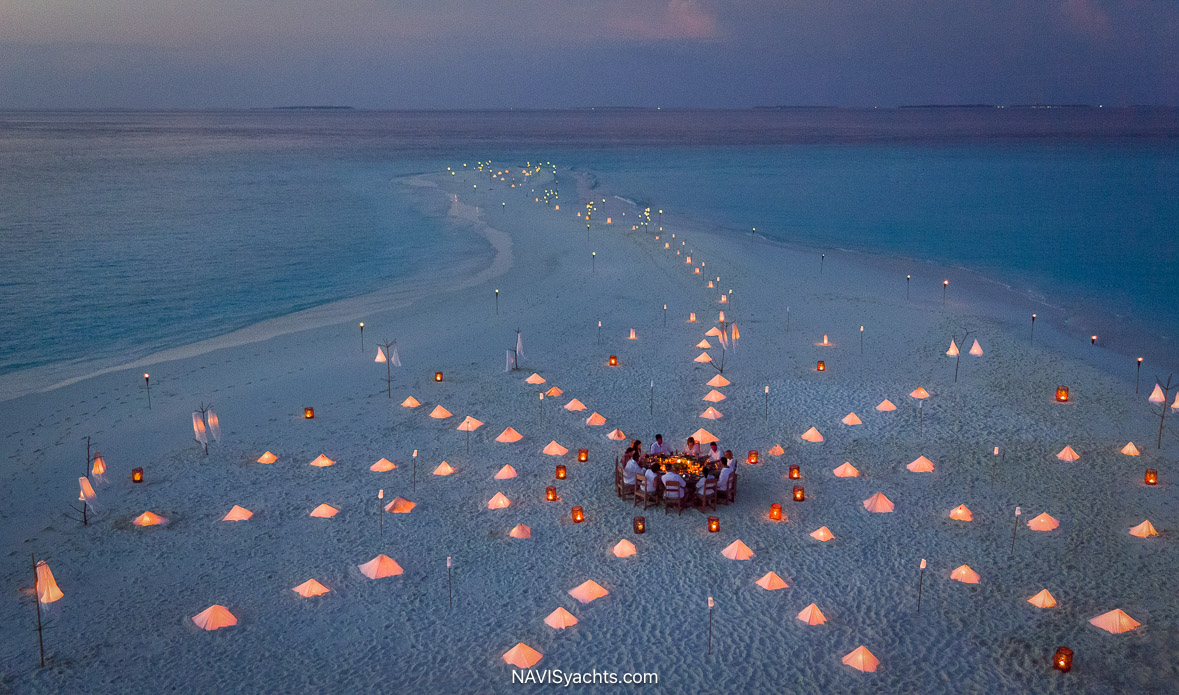
The Rhythm of the Island
Moving through Soneva Fushi means moving at the island’s pace, which is dictated by the natural rhythm of the sun and the tides. There are no roads, no engines, no sound of machines. Only bicycles, leaning lazily outside each villa, waiting for a ride. The wheels sinking slightly into the soft, white sand as the jungle closes in on either side, the scent of salt and earth thick in the air. Soon, the body adjusts. The rhythm slows, the movements become effortless, and suddenly, you are not a visitor. You are part of the island itself.
The paths wind like rivers through the tangle of banyan trees and pandanus, past hidden beaches and sunlit clearings. The jungle is alive, humming with sounds, the distant crash of waves, the shrill calls of birds, the rustle of something unseen moving through the undergrowth. Tiny hermit crabs, no larger than a fingertip, scuttle across the sand, leaving delicate trails in their wake. And then, unexpectedly, a flash of movement. A rabbit, its fur blending into the dappled light, watching before vanishing into the underbrush. Every encounter is a lesson in stillness. What first startles, a shadow flitting across the path, the sudden scurry of a crab at your feet, becomes a quiet joy. The island is generous with its secrets, revealing them only to those who move slowly enough to notice.
The briny air carries the scent of the ocean, the damp perfume of the jungle after the rain. Sometimes, the wind shifts and the fragrance of frangipani drifts in, sweet and fleeting, as if the island itself has exhaled. The breeze cools the skin, a relief from the heat, a reminder that the sea is never far.
The days do not demand direction. There is no destination, only the pleasure of moving through a world without hurry or urgency. And sooner or later, every path leads to the beach, a ribbon of white so fine it feels like powder underfoot, scattered with delicate coral fragments, like offerings from the reef. The sand is untouched, impossibly soft, its curve circling the island in perfect quiet.
And beyond that curve, the ocean waits. It shimmers between the trees, tugs at the ankles, calls softly from the horizon. To follow it is instinctive, to walk until the earth ends, and the sea begins.
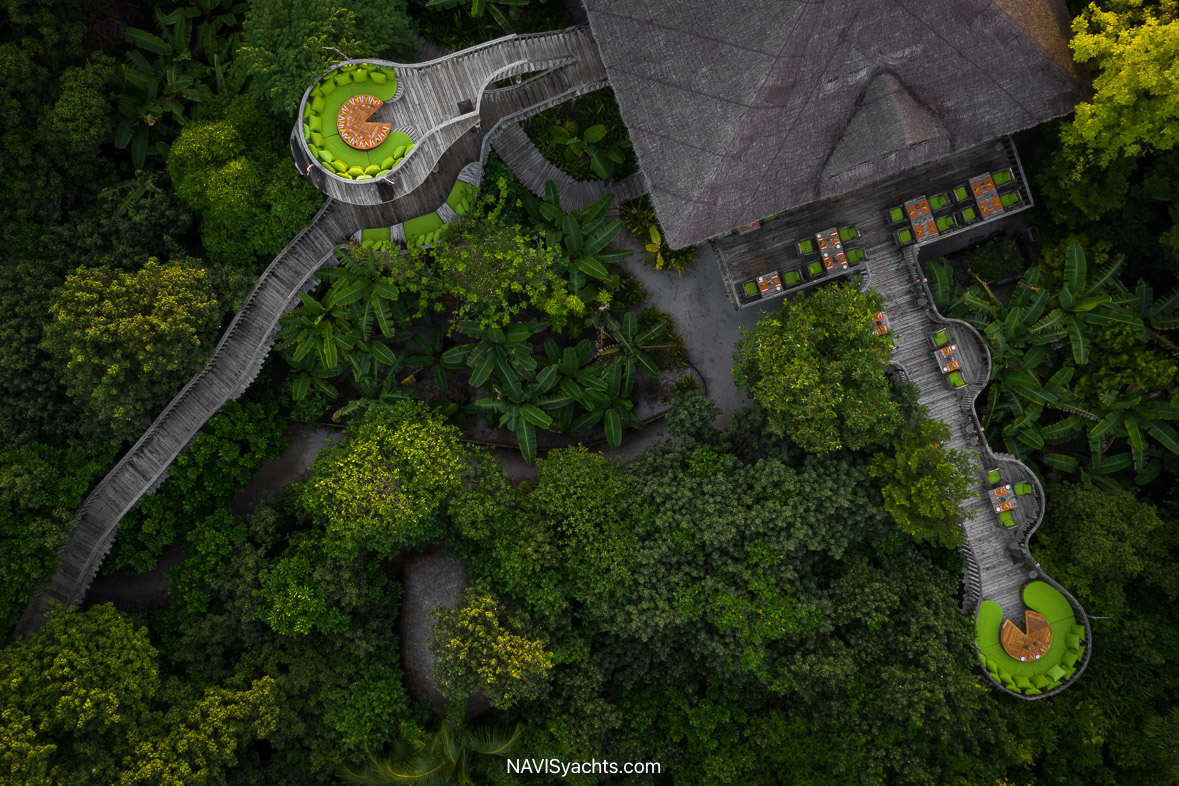
A World That Watches
There is a moment, just before slipping beneath the surface, when the ocean holds its breath. The body hovers between two worlds, the familiar realm of air and sky, and the silent, unknowable expanse below. With a single movement, the transition is complete, the reef unfolds, a universe teeming with life, a cathedral of coral and light where the rules of gravity no longer apply.
A sea turtle drifts past, ancient and unhurried, its movements fluid as if time was slower here. Schools of tiny fish shift in synchronized waves, vanishing and reappearing like mirages. Beneath a swaying forest of anemones, clusters of clownfish dart in and out, their bright colors flashing like embers against the blue. Deeper still, reef sharks patrol the edges of vision, spectral and indifferent, their presence neither threatening nor afraid. A shadow passes overhead, a manta ray, wings outstretched, moving as if gliding through another dimension. There is no fear, only awe. The creature’s vastness and effortless command of the current remind us of something long forgotten: that the ocean is not ours. It is a sovereign world, complete without us, and our presence within it is a privilege, not a possession.
This world is open to those willing to embrace it. The island offers everything needed to move with the water, to skim its surface, to surrender to its depths. A board to chase the rhythm of the waves, a paddle to carve silent paths through the turquoise shallows, a sail raised to the wind, carrying the body weightlessly across the horizon. Here, the sea is something to feel as much as see, a force to move with, not against.
Beyond the shore, where the ocean stretches unbroken to the edge of sight, another kind of journey awaits. Soneva in Aqua drifts in quiet elegance, a yacht designed to move in harmony with the sea. A floating sanctuary, she carries travelers to waters untouched, to islands unseen, to the endless blue where the world dissolves into sky. Onboard, time is measured not in hours, but in the glow of the sun on the deck, the slow unfurling of a sail, the scent of salt carried on the wind. A chef crafts meals from the day’s catch, waves rock the cabin in a gentle lullaby, and in the quiet of the night, the stars spill across the sky in a way they never do on land.
Sometimes, the call of the sea changes. A boat waits at the dock, its bow pointed toward the horizon, ready to slip into the golden path cast upon the water. The journey begins in silence, the only sound the gentle lapping of the waves against the hull.
And then, as if summoned by the rhythm of the sea, they appear, graceful, curious, alive. Dolphins break the surface in playful arcs, their sleek bodies gliding effortlessly alongside the boat. They do not flee; they come closer, drawn by something unspoken, their dark eyes meeting those of the travelers with an intelligence that feels almost like recognition. They dance in the wake, weaving between one another, twisting, leaping, watching just as much as they are watched.
The boat carves a slow path through the glassy water, the sky shifting from gold to amber to deep, smoldering violet. The islands in the distance darken into silhouettes, and the first stars flicker awake. The dolphins remain, their presence a reminder of the ocean’s generosity, of the quiet magic that unfolds when one simply lets the sea reveal itself. Long after the journey ends, their playful grace remains, an experience that imprints itself beyond sight, into feeling.
The ocean, vast and unknowable, is here to be explored, but never claimed. It watches, indifferent yet welcoming, waiting for those who understand that to enter its depths is not to take, but to become part of its endless story.
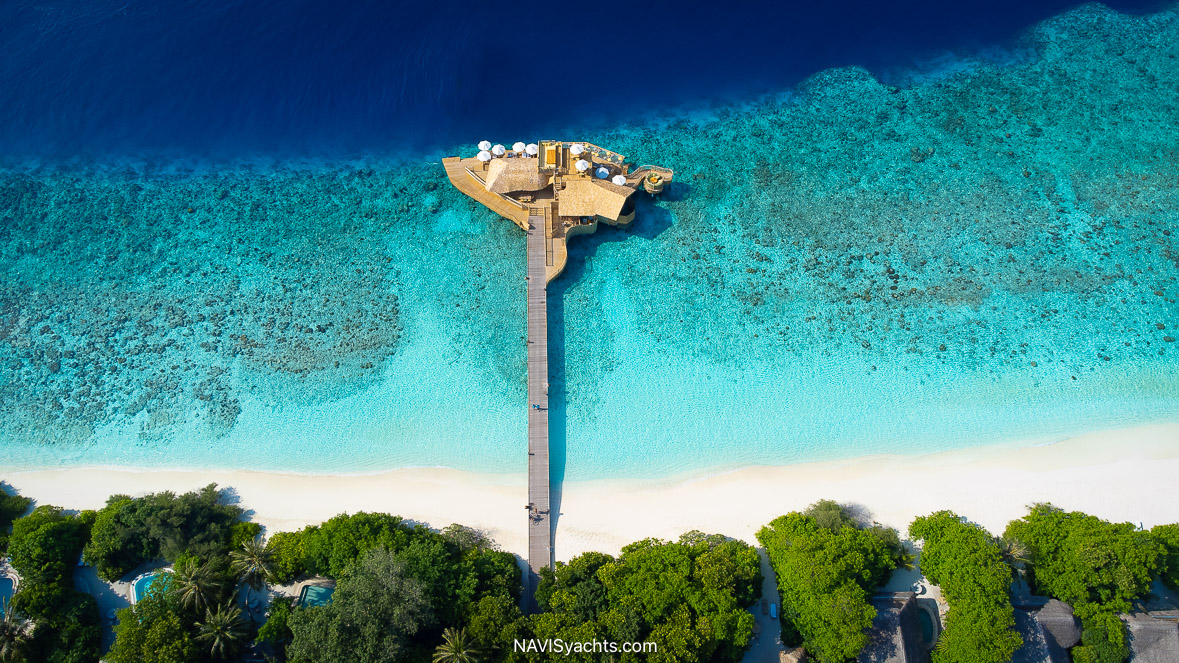
A Feast Without End
After the sea has quieted, the island offers another kind of wonder, one made not of salt and current, but of fire, earth, and taste. The senses, stirred by wind and water, now turn inward. The island reveals its flavors the way it reveals its secrets, slowly, unexpectedly, at just the right moment. Wandering through the jungle, the scent of herbs drifts in the air, mingling with the salt of the sea. A hidden staircase leads to a treetop sanctuary, where tables are suspended above the gardens, swaying slightly with the evening breeze. This is Fresh in the Garden, where the island’s harvest dictates the menu, and the act of dining feels like an extension of the land itself. Beneath the open sky, plates arrive as if conjured from the earth, grilled lobster dusted with garden herbs, yellowfin tuna kissed by citrus, vegetables still warm from the Maldivian sun. The chef moves within view, his hands working in rhythm with the crackling flames, the scent of fire and spice carrying into the night.
Further along the shore, a wooden jetty stretches over the water, leading not just to the ocean, but to another world entirely. Out of the Blue is perched above the waves, a place where flavors are as fluid as the tides.
Southeast Asian spices meet the precision of Japanese technique, a balance of heat and silk, salt and smoke. Here, sushi is sculpted with the same patience as the sea wears away the shore. Miso-marinated black cod melts on the tongue, its depth of flavor lingering like the warmth of the sun on skin. Beneath the restaurant, nets are stretched over the sea, inviting diners to recline and let the water cradle them between courses. Time slows. The horizon darkens to violet. A single ripple disturbs the surface below, a fleeting trace of something unseen.
Back on land, the warmth of lantern light beckons, a hammock table at Down to Earth, where the ocean stretches out in silver beneath the full moon. The fabric sways gently, cradling the body, blurring the lines between dining and dreaming. The meal unfolds like a story: grilled salmon, smoky and tender; pasta carbonara, ceviche kissed with citrus. Between bites, the night speaks, the hush of the waves, the weight of the stars, the slow realization that moments like this are rare, fleeting, and perfect.
What follows is indulgence, found in a hidden chamber where time does not dictate when pleasure is allowed. Cheeses, aged and rich, wait under the glow of lanterns. Chocolates, dark and melting, dissolve before their depth is understood. Ice creams, endless in selection, sit in quiet rows, ready to be scooped at any hour. Because here, pleasure is not rationed, it is given freely.
A Journey to the Infinite
When the last embers of sunset fade and the island surrenders to the quiet embrace of night, Soneva Fushi transforms into something celestial. The night is an invitation, a gateway to another world, where time stretches and the senses sharpen. At the observatory, the universe unveils itself in a way it never does elsewhere. The moon appears so close that every crater and shadow feels within reach. Jupiter looms massive and regal, Mars flickers red against the darkness, and ancient constellations trace forgotten stories across the sky. The telescope becomes a portal to the unreachable, a reminder that there are worlds beyond this one, silent and waiting.
Closer to the earth, another kind of magic unfolds. An open-air cinema, where the film is only part of the story, the sea breathes just beyond, the moon casts silver reflections across the sand, the stars outshine the screen.
A starlit dinner on a sandbank, where flickering lanterns light the table, and the waves whisper at the shore. A midnight swim among bioluminescent plankton, where every movement leaves a trail of light, as if the ocean itself were made of falling stars. A private moonlit cruise, drifting across the water as the island glows softly in the distance. The night deepens, and the island exhales. The ocean stretches to infinity, mirroring the sky. As the stars begin to map the skies above, the body reveals its own quiet patterns of light. The vastness out there finds its reflection within, in the pulse beneath the skin, the breath rising and falling, the subtle hum of something deeper. It is here, in this softened state, when the island offers yet another passage, not into the sea or the sky, but into the self.

A Ritual of Renewal
Tucked deep within the island’s green heart, where the light falls soft through the trees and the air carries the faint scent of lemongrass and warm stone, Soneva Soul waits, quietly calling you back to something you never realized you’d left behind. To stillness. To breath. To something remembered, just beneath the surface of modern life.
Inside, time quiets. Footsteps slow. The hush is broken only by the murmur of water, the occasional birdsong, the sound of breath meeting silence. Warm oil glides across the skin in unhurried strokes, like the sea tracing the shore. A Maldivian coconut scrub dissolves like tide-washed sand, and herbal compresses, steeped in leaves and stories, press into muscles, coaxing them to let go. In one room, bowls sing in low, resonant tones, their vibrations rippling through the bones, settling the mind into stillness.
But Soneva Soul is a sanctuary where ancient healing wisdom meets the quiet edge of science. A place where tradition is honored and the future embraced. Where one might lie in a chamber of cold and light, recalibrating body and mind, or float in a bath of herbs and mineral salts beneath the open sky. Each treatment becomes a ritual, one that dissolves the separation between the physical and the spiritual. What is touched is the body, but what is moved, gently, is the soul.
Emerging from this world, lighter, slower, more whole, the jungle seems to breathe in sync with the body. The sea glitters through the trees. The skin carries the warmth of stone and the memory of touch. And for a moment, it feels as if the island has shifted, no longer around you, now within you.
Leaving, But Never Truly Gone
Morning arrives slowly. The first light spills across the water, turning the world to gold. There is a weight in the air, not of sadness, but of something quieter, the quiet of endings, of last times.
A final ride through the jungle, the bicycle wheels tracing the same sandy paths as the days before, but now, each turn feels more deliberate, each breath deeper. The air is thick with the scent of salt and frangipani, the same scent that greeted the first arrival. The ocean waits, unchanged, eternal. One last swim, the body weightless, the water warm as an embrace. The waves press against the skin as if memorizing every contour before letting go.
There is no rush, yet somehow, this time is gone. A last barefoot step onto the jetty. A glance back: The island stands as it always has, unchanged, indifferent, waiting for the next traveler to arrive and surrender to its rhythm.
The plane lifts off. The island recedes, shrinking into the endless blue. And yet, it does not disappear. It lingers somewhere beyond sight, in the mind and body, in the way time now feels slower and silence feels fuller.
Some places you visit, and others you carry with you. Soneva Fushi remains long after the footprints in the sand have faded.
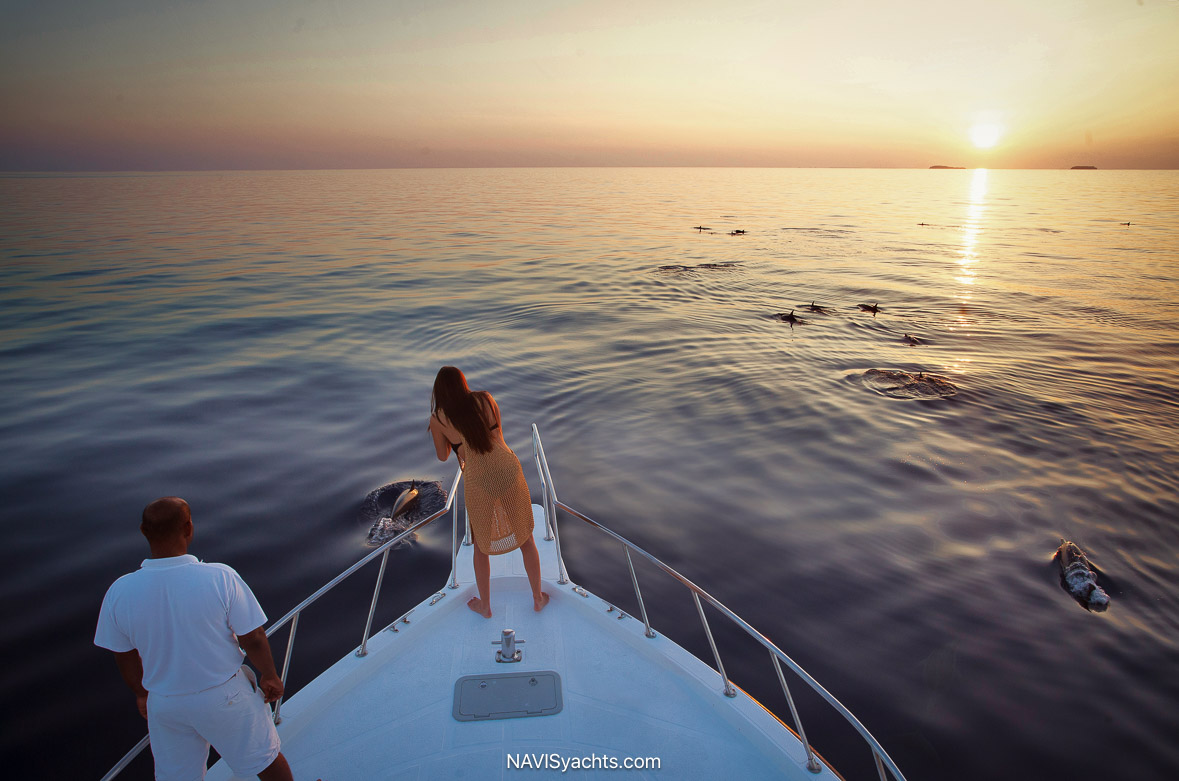
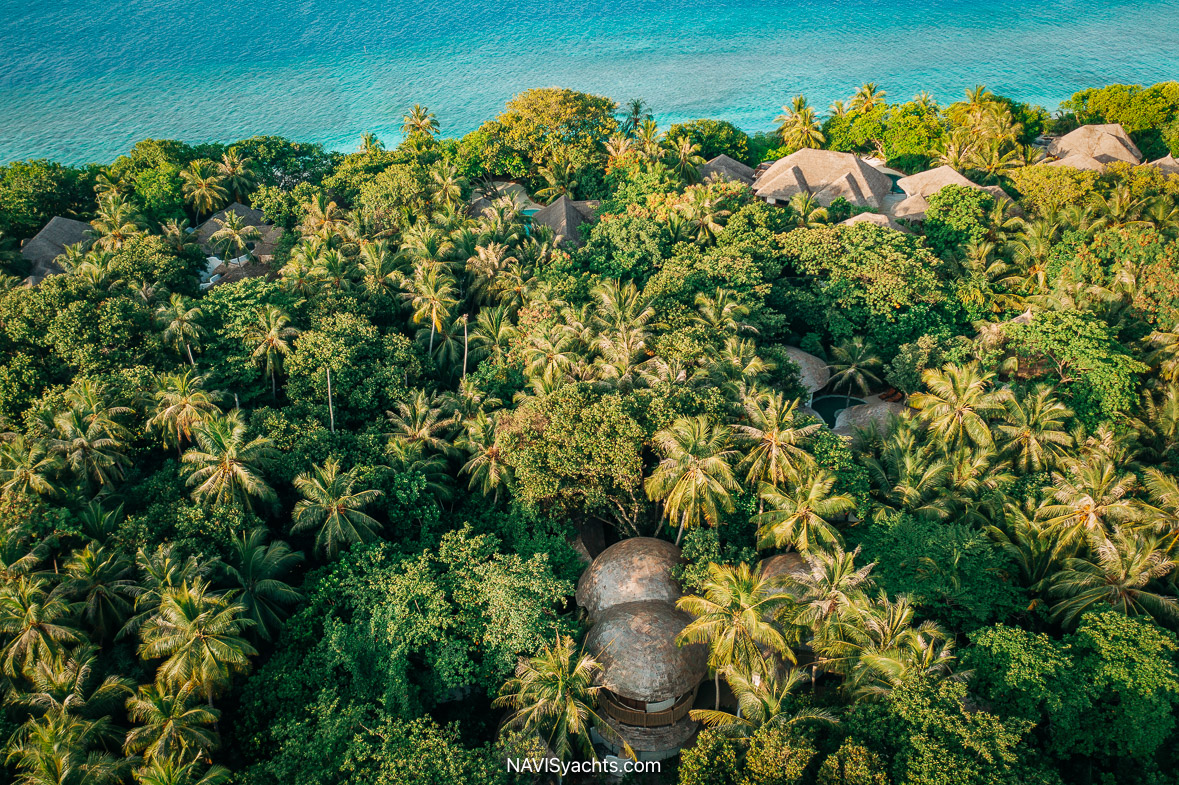
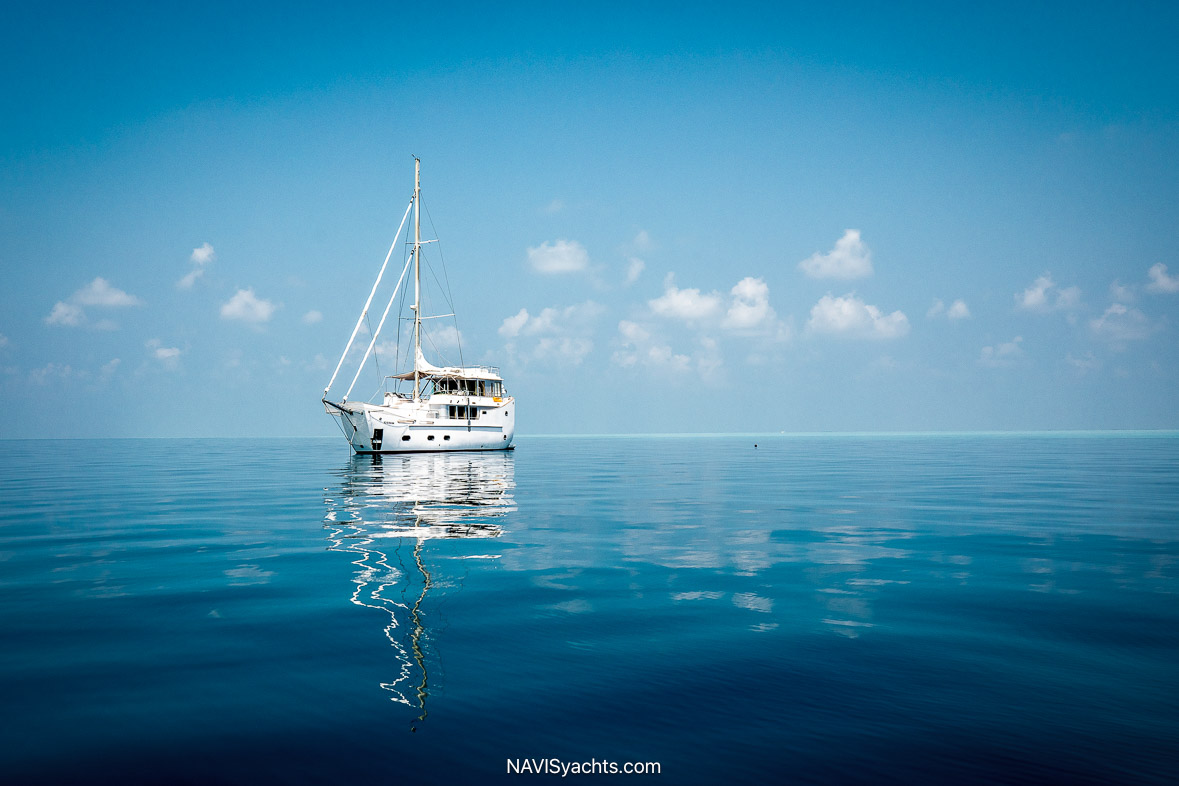

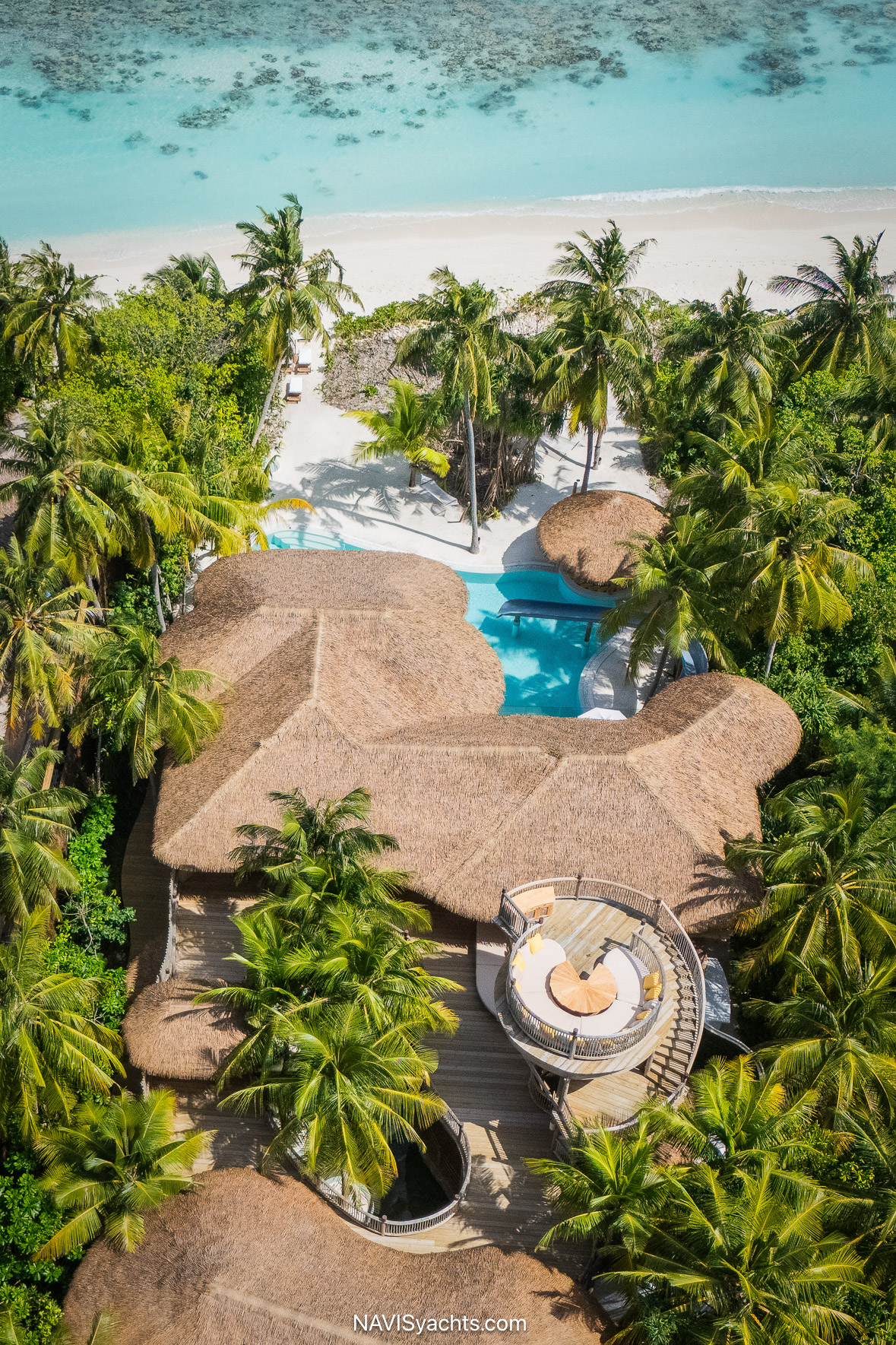
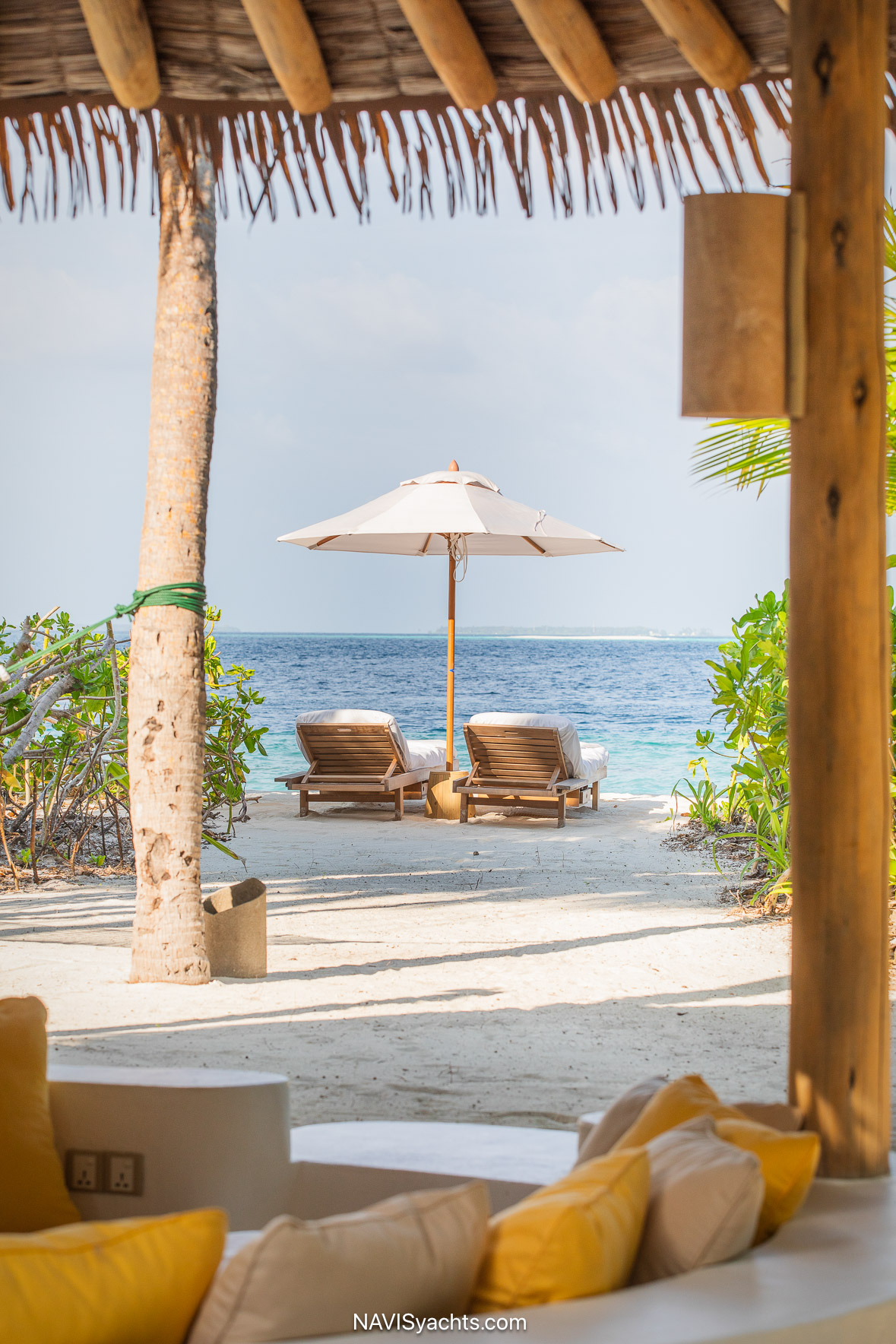
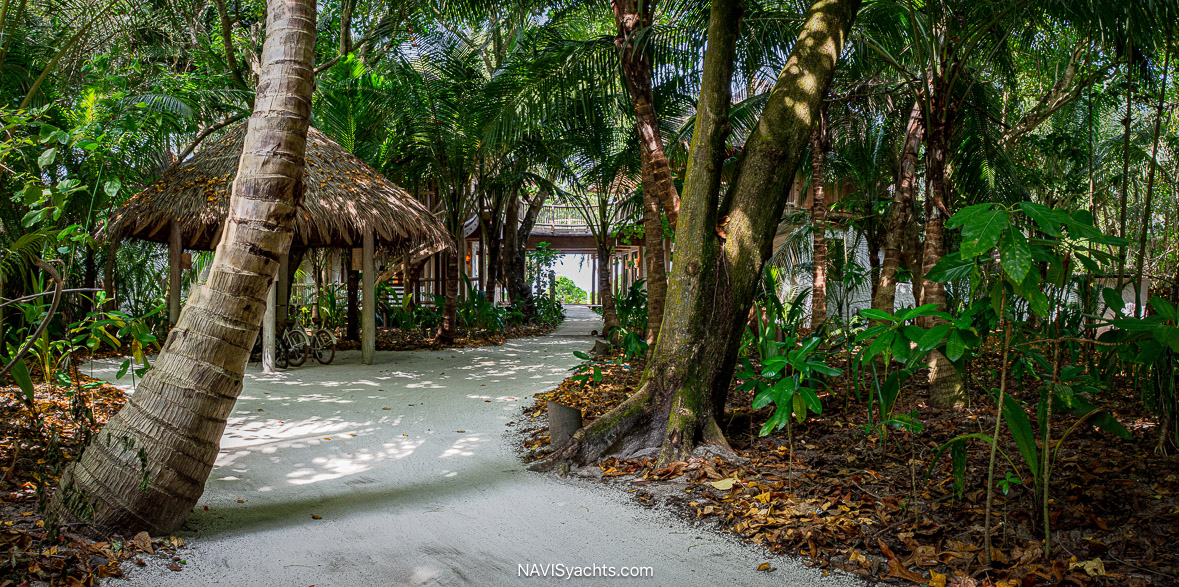



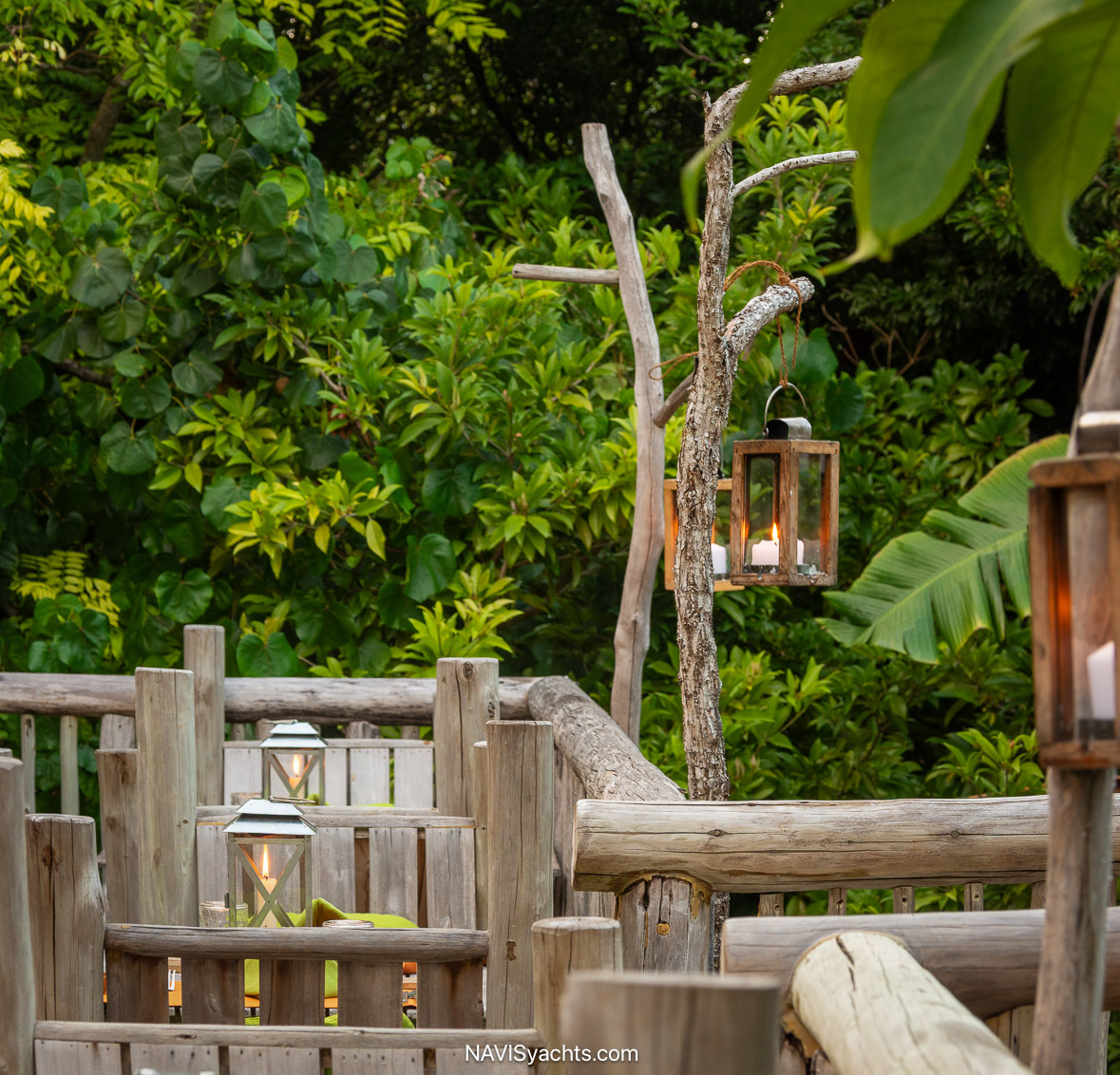
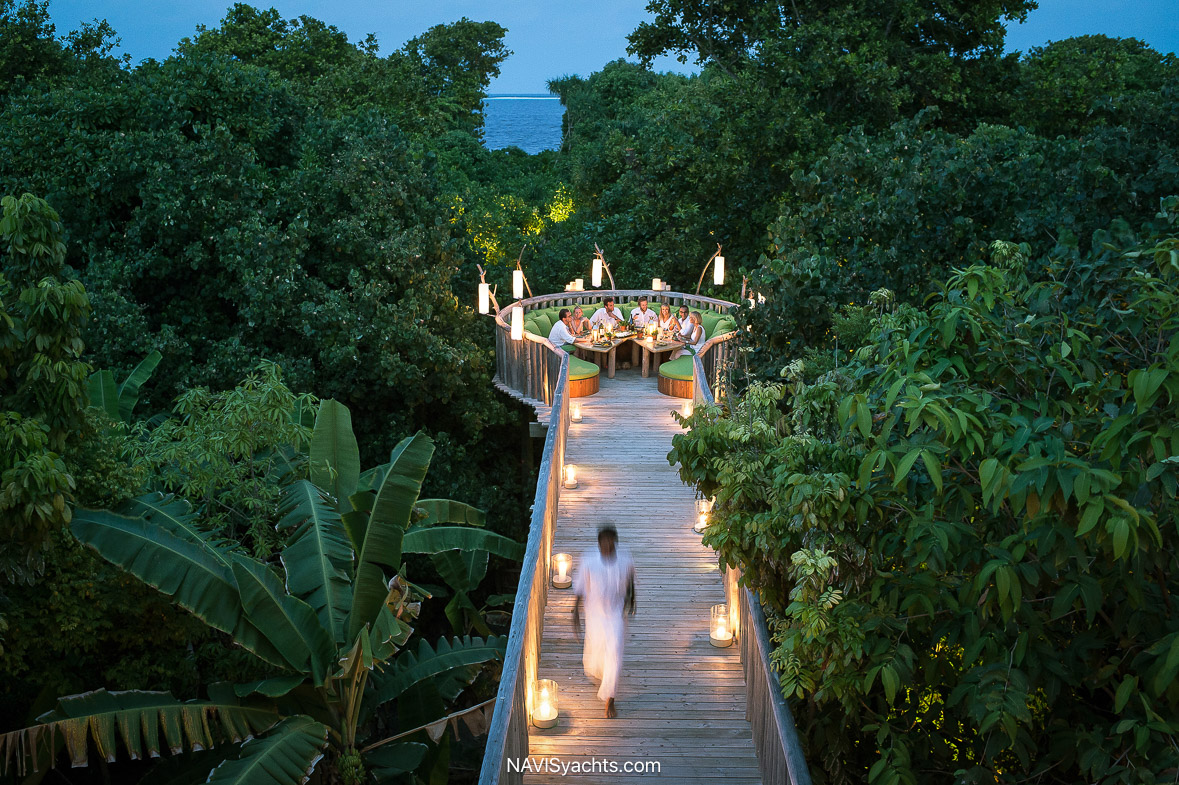
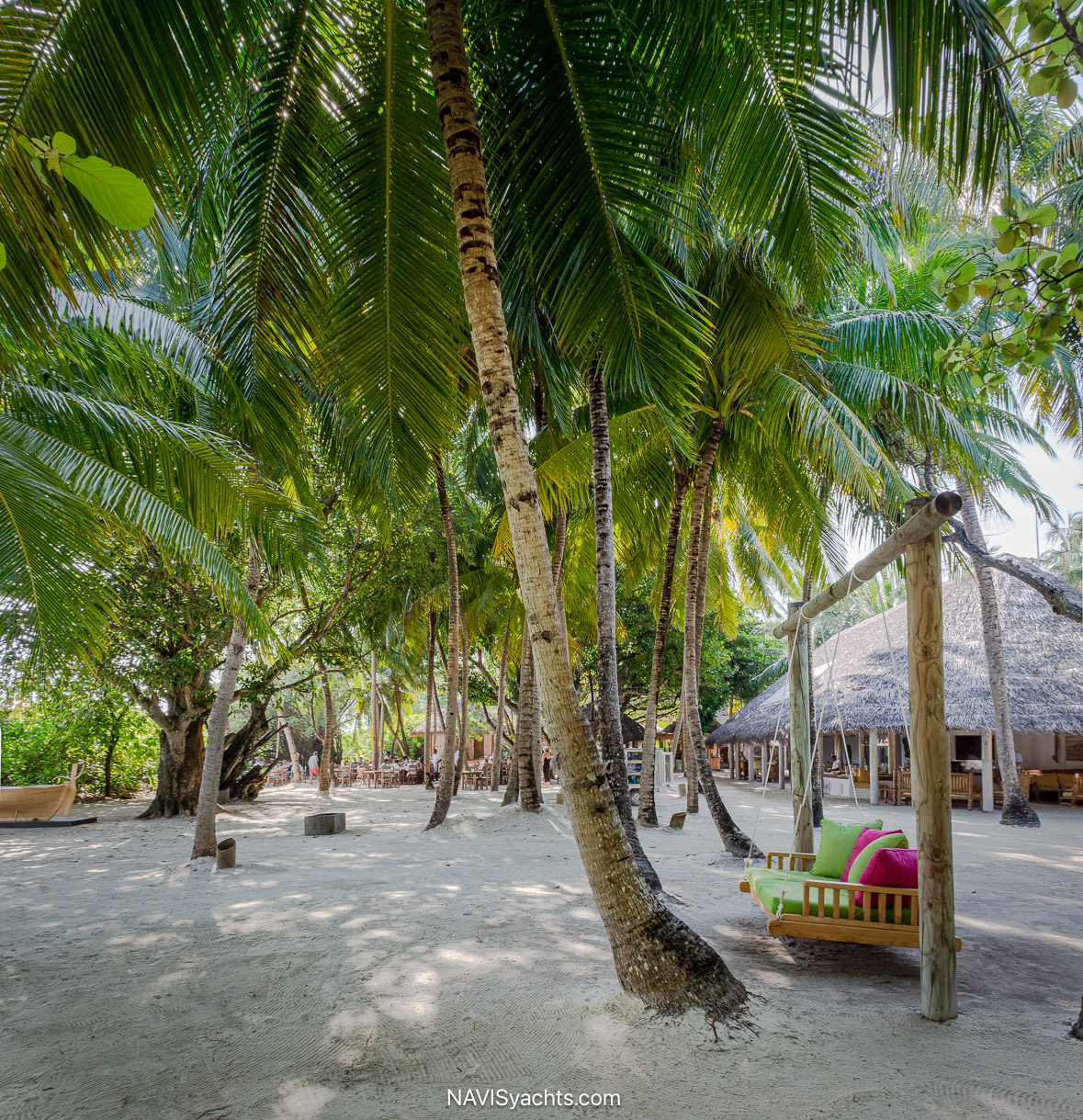
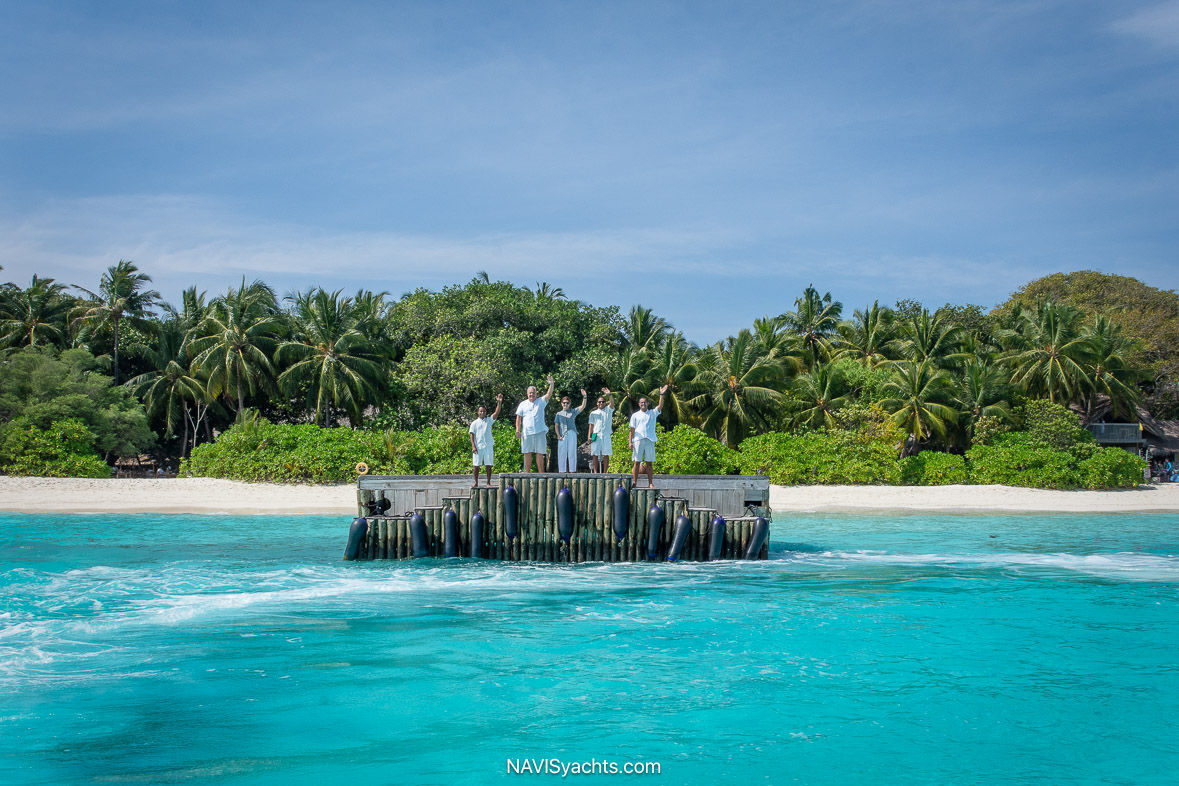

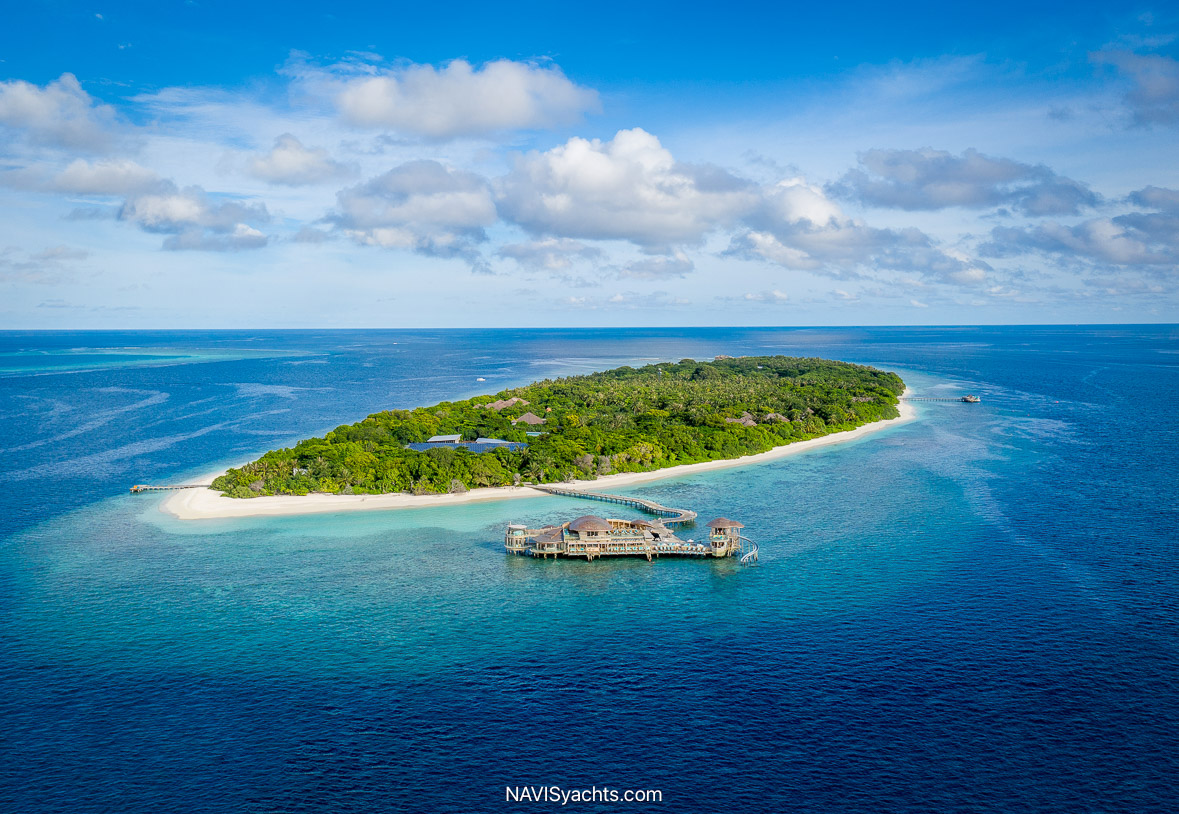

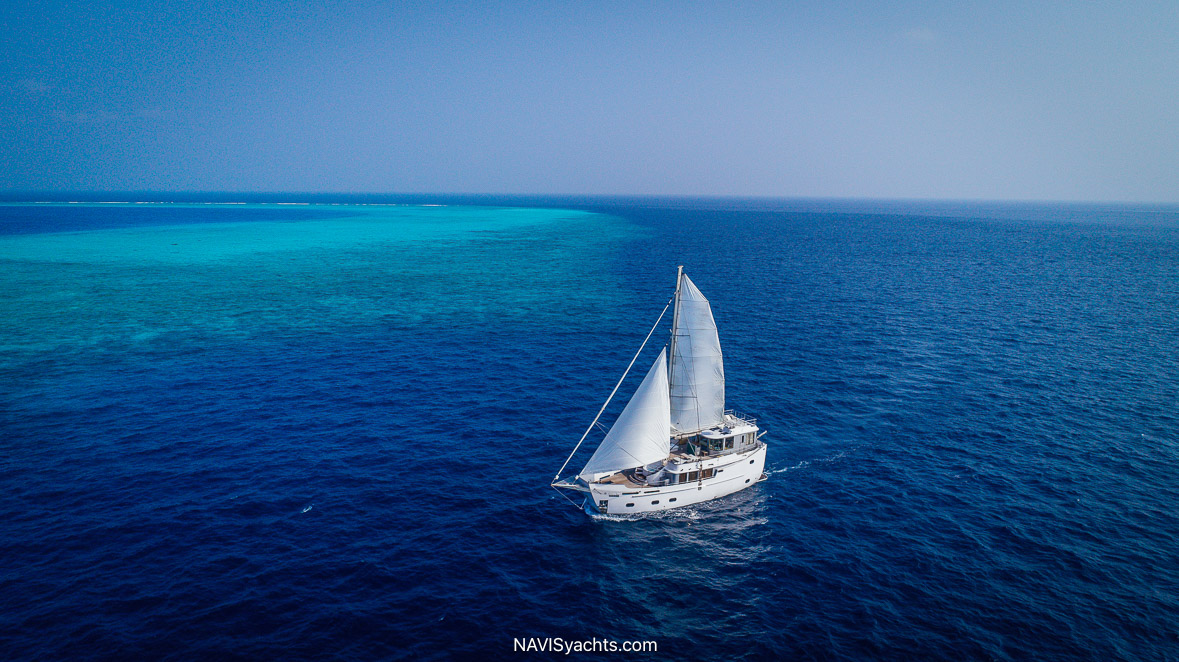
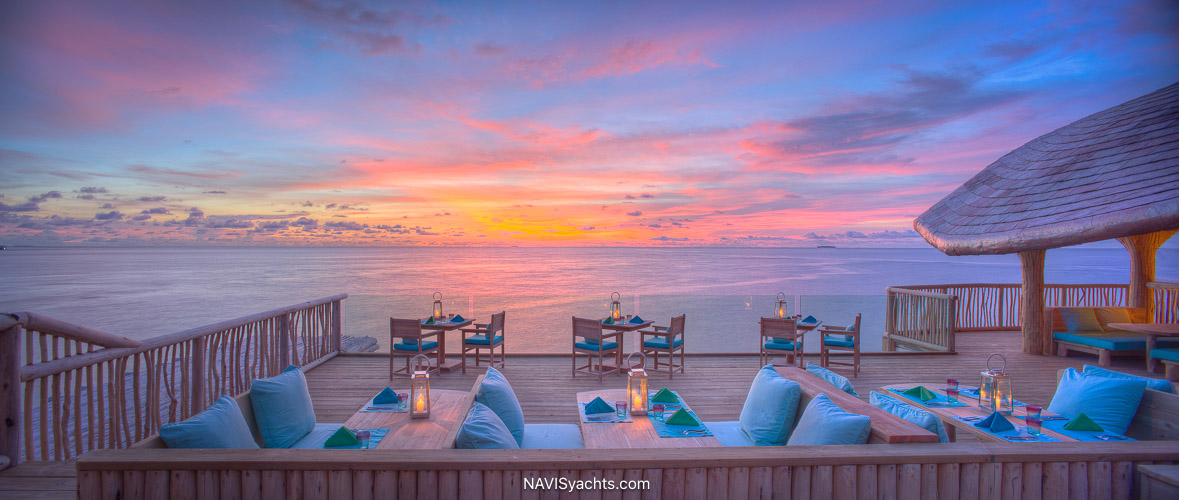

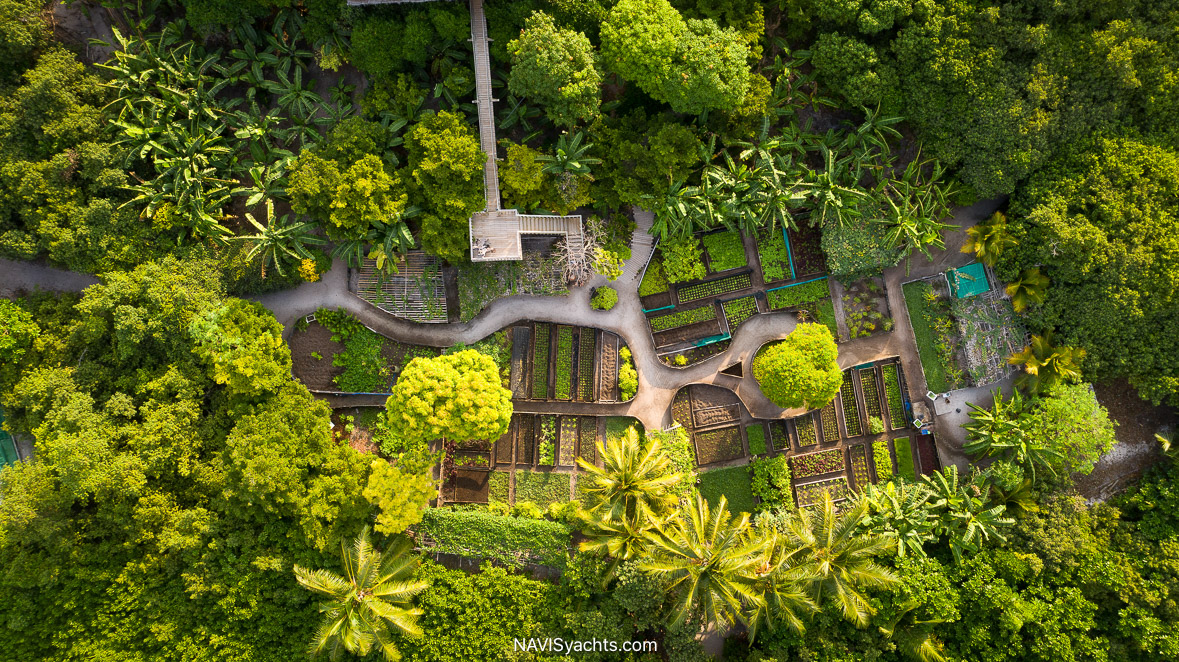
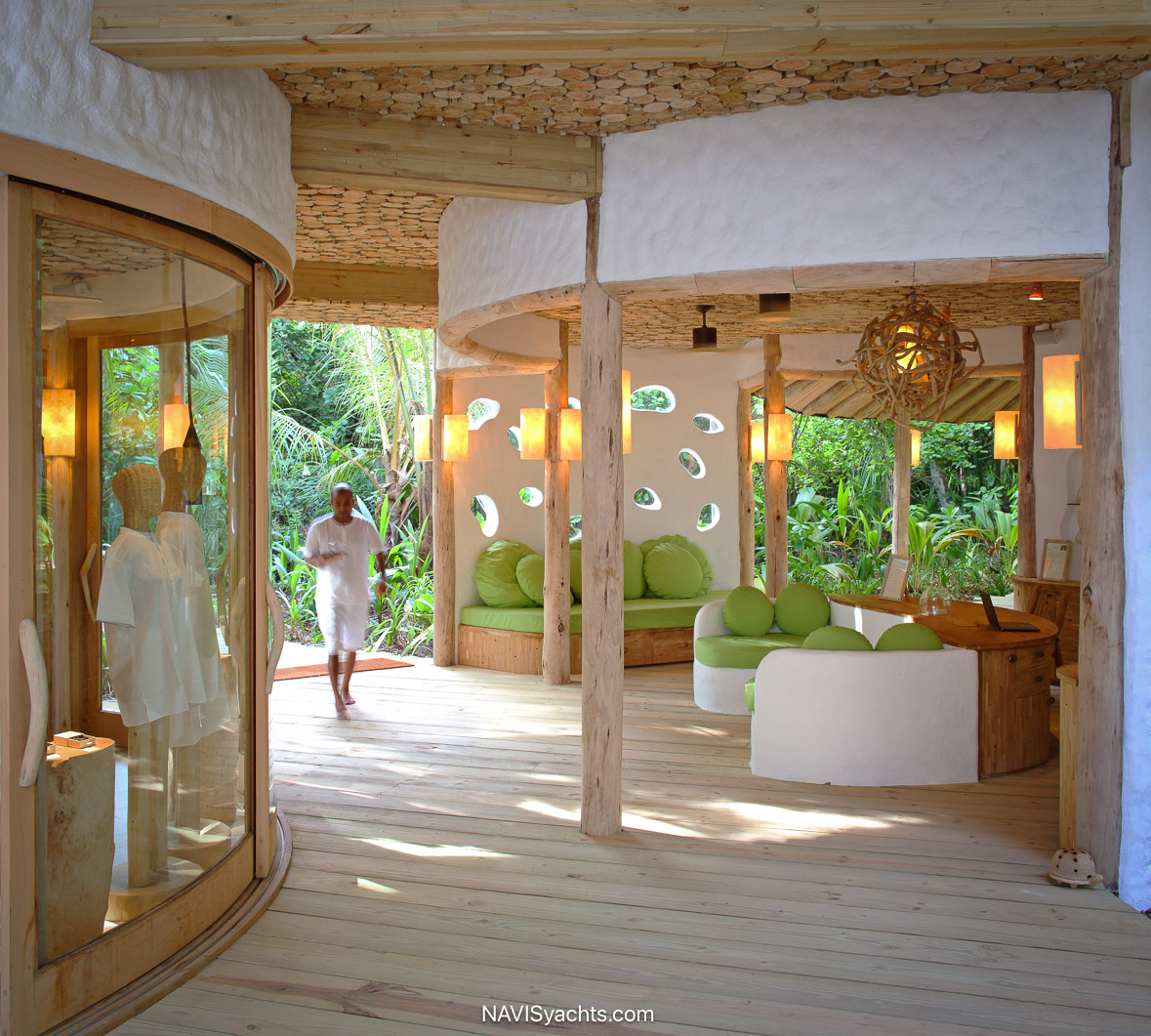
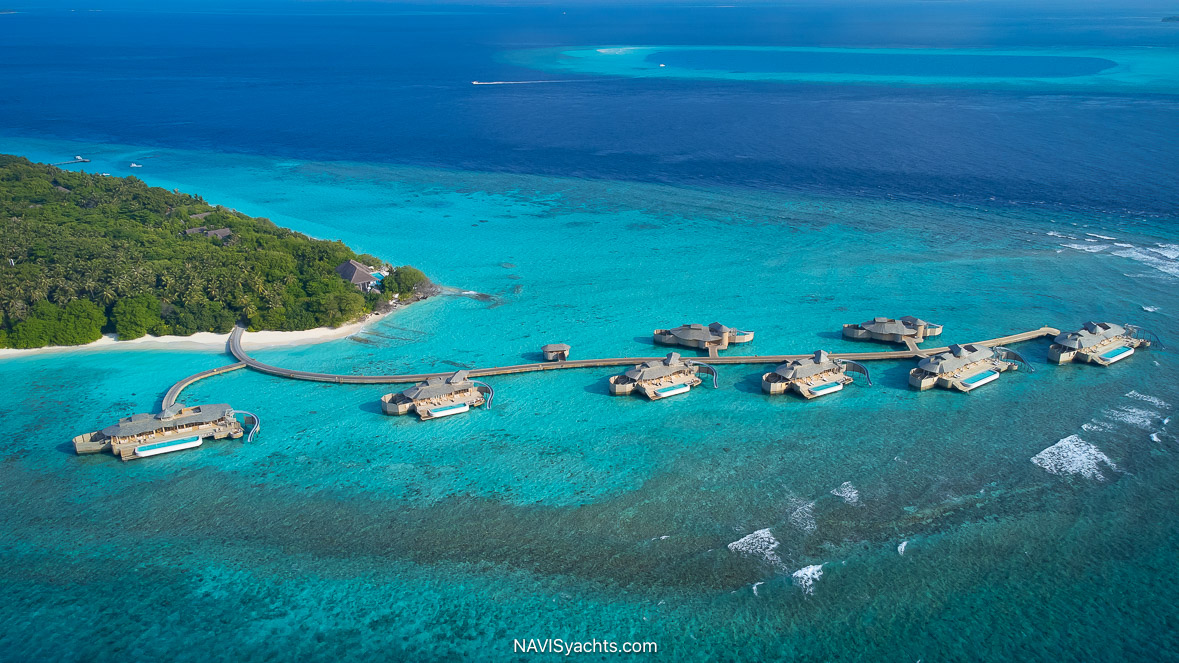

Looking for more island escapes? Discover our reviews of other luxurious resorts around the world—from private Maldivian hideaways to Caribbean sanctuaries. Explore more here »
Photos: Stevie Mann, Haneen Siddiq, Matt Porteuos, Sandro Bruek Imeier, Alicia Warner, Julia Neeson - Soneva Media, Pablo Ferrero | Words: Maria Donadio

